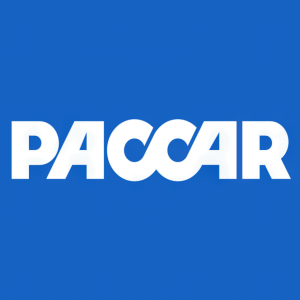Accelera by Cummins, Daimler Truck and PACCAR Select Mississippi for Battery Cell Production in the United States

(Graphic: Business Wire)
The planned joint venture between Accelera, Daimler Truck and PACCAR was announced in September 2023 and will create scale to deliver cost effective and differentiated battery cell technology that supports the adoption of electric vehicles for medium- and heavy-duty commercial transportation. Accelera, Daimler Truck and PACCAR will each own
“This site selection represents an exciting and tangible step toward advancing our Destination Zero strategy and our vision to lead the industry toward a decarbonized future,” said Jennifer Rumsey, Cummins Chair and Chief Executive Officer. “We are excited to join the
“Localized battery cell production is an important component of delivering our customers – the fleets that keep America and the world moving – cost effective options for decarbonizing their operations,” said John O’Leary, president and CEO, Daimler Truck North America. “We’re grateful to the
“The state, the communities and the people of
Accelera, Daimler Truck and PACCAR are leading the commercial vehicle sector’s transition to zero-emissions technologies. The partners are committed to reducing carbon emissions consistent with the Paris Climate Agreement.
The transaction is subject to customary closing conditions and receipt of applicable merger control and regulatory approvals, including the submission of a voluntary notice to the Committee on Foreign Investment in
About Accelera™ by Cummins [NYSE: CMI]
Accelera by Cummins provides a diverse portfolio of zero-emissions solutions for the world’s most economically vital industries, empowering them to accelerate the transition to a sustainable future. Accelera, a business segment of Cummins Inc., is both a components supplier and integrator, focused on batteries, hydrogen fuel cells, e-axles, traction drive and electrolyzers. Accelera currently has operations in
Cummins, a global power technology leader, is a corporation of complementary business segments that design, manufacture, distribute and service a broad portfolio of power solutions. Headquartered in
To learn more about Accelera by Cummins, visit accelerazero.com.
About Daimler Truck [DAX: DTROCK]
Daimler Truck Holding AG ("Daimler Truck") is one of the world's largest commercial vehicle manufacturers, with over 40 main locations and more than 100,000 employees around the globe. The founders of Daimler Truck have invented the modern transportation industry with their trucks and buses a good 125 years ago. Unchanged to this day, the company's aspirations are dedicated to one purpose: Daimler Truck works for all who keep the world moving. Its customers enable people to be mobile and get goods to their destinations reliably, on time, and safely. Daimler Truck provides the technologies, products, and services for them to do so. This also applies to the transformation to CO2-neutral driving. The company is striving to make sustainable transport a success, with profound technological knowledge and a clear view of its customers' needs. Daimler Truck's business activities are structured in five reporting segments: Trucks North America (TN) with the truck brands Freightliner and Western Star and the school bus brand Thomas Built Buses. Trucks
About PACCAR [NASDAQ: PCAR]
PACCAR is a global technology leader in the design, manufacture and customer support of high-quality light-, medium- and heavy-duty trucks under the Kenworth, Peterbilt and DAF nameplates. PACCAR vehicles combine state-of-the-art diesel and zero-emissions powertrains with comprehensive PACCAR charging solutions and infrastructure support. PACCAR also provides financial services and information technology, and distributes truck parts related to its principal business.
View source version on businesswire.com: https://www.businesswire.com/news/home/20240117979244/en/
Accelera by Cummins Media Contact:
Jon Mills
+1-317-658-4540
jon.mills@cummins.com
Daimler Truck Media Contact:
Anja Weinert
+1-669-600-1478
anja.weinert@daimlertruck.com
PACCAR Media Contact:
Ken Hastings
+1-425-468-7530
ken.hastings@paccar.com
Source: PACCAR Inc







